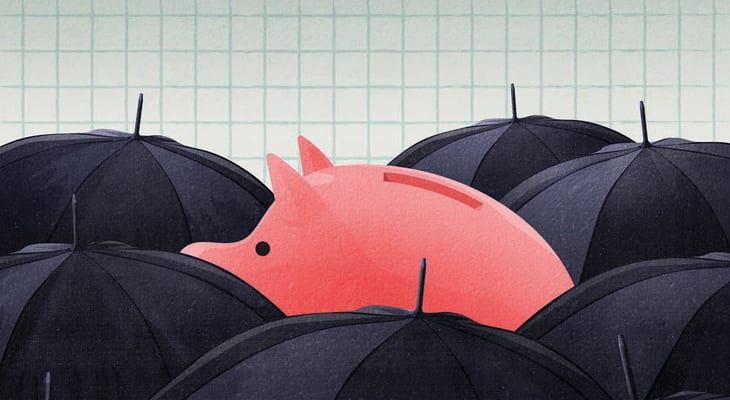Economist Kenneth Rosen says growth continues but recession risk rises in 2020/21

Every year for the past 40, Kenneth Rosen has released his influential real estate and economics forecast. Rosen, faculty director of the FisherCenter for Real Estate and Urban Economics, synthesizes dozens of economicindicators and hundreds of data points about the global, national, and Bay Area economy to assess what’s to come. This year’s outlook? “In the near term, the economy is still blazing,” Rosen says. “But in the longer term, the risk is rising.” We asked him more.
You foresee a downturn within the next 24 months or so. What are the main trouble signs starting to appear on the horizon?
KR: We’ve had these economic cycles every seven to 10 years over the last 50, and it’s usually excesses that create the seeds for the next downturn. This time, we’ve had extremely easy money from the central banks around the world, and that’s created bubbles. Now, the central banks are pulling back—especially ours. Easy capital has produced situations that aren’t sustainable in a tight or even normal monetary environment. That’s what happened last time with the housing boom and bust. Essentially the same thing is happening in this cycle, but it’s in leveraged loans, tech, venture capital investments, and private equity. We’re going to see a correction in 2020 or 2021—less severe than we had last cycle, more like in 2000–2003.
Are we in a tech bubble, and is it similar to the last one?
KR: What’s similar is we’ve created a lot of companies and a lot of innovations, of which only a small fraction will be successful at sustainable profitability.The difference is we now also have a number of big companies that are very sustainable and profitable: Google, Facebook, Apple. The epicenter of the problem is going to be in startups and the unicorn universe where they’re living off capital.
Are California and the Bay Area especially vulnerable?
KR: The Bay Area is the worldwide center of this venture capital tech boom. We’ve benefited greatly from it in terms of job creation, income growth, and real estate values. We went up the most, and we’ll go down the most, just as we did in 2000–2001. Nationally, that was a mild recession but here it was deeper. I expect this one will be moderate.
What are the most important things businesses, especially small businesses, should do?
KR: In a recession, businesses should be prepared for a period where they’re going to have 20 to 30 percent less revenue, so they need to have enough reserves to handle that. If you have debt exposure, now is a good time to lock that in so you can avoid higher debt costs. If you have physical assets such as real estate, now might be a good time to sell or exchange them. Again, lock in your gains. And refinance tomorrow if you haven’t.